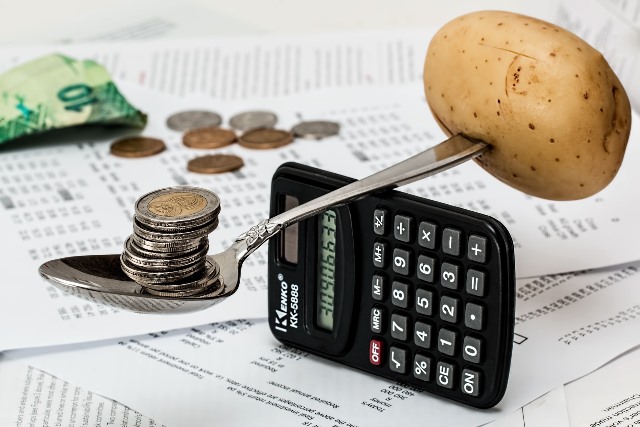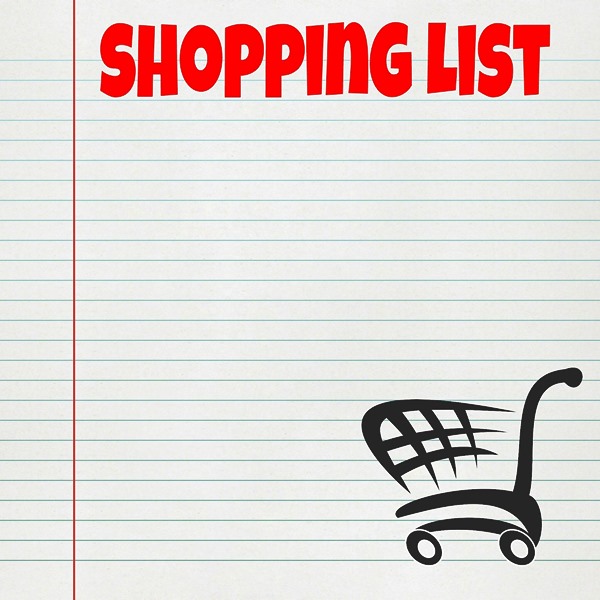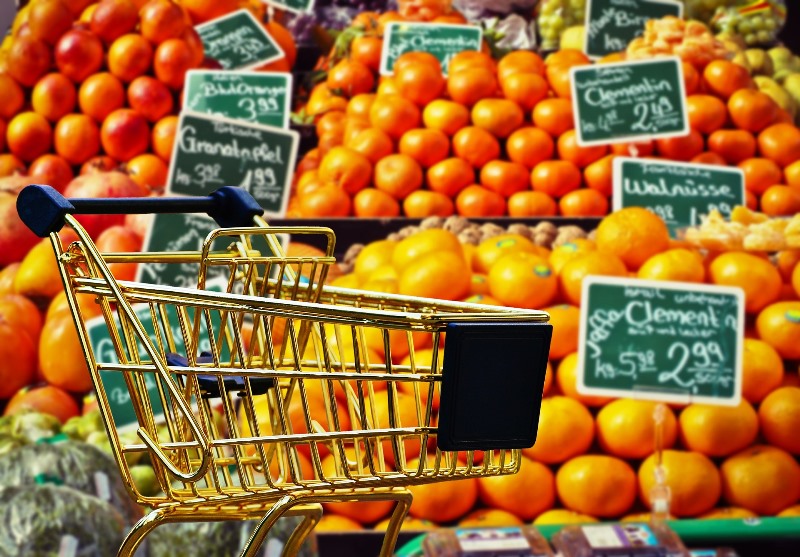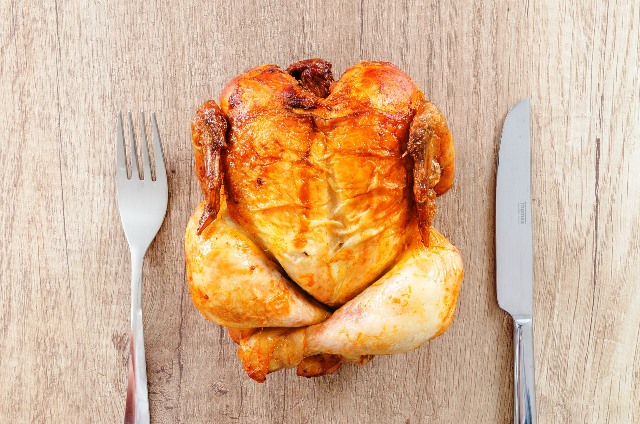How To Gain Healthy Weight On A Budget:

Saving money At The Supermarket
Love bargains and saving money? Me too! Find out how to do this AND achieve your weight goals on How to Gain Healthy Weight on a Budget.
Food shopping is a major expense for most people so let’s see what we can do to save some money.
Now, eating well on a budget is a pretty big topic, so we’ll be coming back to saving money in different ways, just because there are lots of ways not to break the bank when eating big.
Today’s post focuses on gaining healthy weight on a budget when shopping at the supermarket.
It’s not hard to eat good quality food for weight gain even on a budget. With some planning and imagination, you’ve got this.
Guide to Affordable Supermarket Shopping
1. Check what you already have at home
So it actually all starts right at home.
Before you head over to the supermarket, check what food you’ve already got and can use at home.
Have you got some kitchen staples that you can use like oats, wholemeal pasta, beans, rice, frozen vegetables etc?
Next, go through the supermarket specials on catalogues (online, in the local paper or delivered to your mailbox) to see what’s discounted, and get ideas of what to cook with these specials.
1. Make a meal plan and shopping list

How to gain healthy weight on a budget means planning.
Once you know what you’ve got at home and what you need to get, the next thing is make a meal plan for the week ahead.
Don’t forget to include food for snacks.
Because I like to drink my calories in between meals, this means fruit, yogurt and milk are must-haves in my meal plan.
Of course, batch cooking meals to eat over several days will also save you time and money.
To clarify, it doesn’t mean you have to eat the same rice meal for the next 5 days (unless you want to).
So first, write your meal plan down- whether on a post it, fancy shopping list notepaper, or on your phone. Wherever. Just make sure you have a list.
Second, on the same piece of paper/ post, make another list. This is your shopping list and what you’ll go armed into the supermarket with to save $$.
2. Shop at a discount supermarket
In Australia on every Wednesday and Saturday morning, a queue snakes its way outside the local Aldi stores well before 8am.
Part of the reason is for its advertised Special Buys on those days (homewares, clothing etc.). But it is also due to its everyday cheaper food prices.
Discount grocery stores have lower prices on lots (not all) of food compared to the more established and better known grocery shops, and can save you quite a bit of cash.
On the whole, I like Aldi for the lower prices, but also because the organic food range there is much more affordable than the regular supermarkets.
Be warned though if you’re going to Aldi, to avoid the centre aisles which are filled with tempting nice-to-have-but-don’t need items.
And of course stick to the lists you’ve made.
3. Buy seasonal

How to gain healthy weight on a budget also means buying food in season. This is great for a number of reasons.
Firstly, it is easily available, abundant, with lots of variety, which means it is cheaper.
It will also be fresher and taste a lot better. Also you’re supporting local farmers and the community.
And remember, lots of supermarkets have online and in-store pamphlets with budget recipe ideas for foods in season.
While there may be something exotic about eating Californian cherries during the Aussie winter, it’s going to cost you.
And all those food miles are also not great for the environment. (You know that fruit will have come from a long way off and have who-knows-what preservatives in it to keep it looking pretty.)
4. Swap and sub
So here I’m talking about two things: substituting name brand for supermarket brand items.
Also, swapping more expensive ingredients for cheaper ones e.g. protein.
Generally for staple foods or single food common items like baked beans, dry pasta, tinned vegetables like corn, chickpeas, beetroot etc, one brand tastes much like the other.
The supermarket brand is usually cheaper with a similar quality to a name brand.
In short, save your money and pick the supermarket brand.
I doubt you’ll notice the difference most of the time and it will help you achieve the goal of gaining healthy weight on a budget.
Also when it comes to making food swaps, you can save money by making simple swaps as well. For example:
- Choose frozen vegetables over fresh vegetables that aren’t in season.
- Pick cheaper cuts of meat/poultry e.g. chicken legs are tasty, filling and cheaper than chicken breast.
- Swap a recipe ingredient like lamb mince with canned tuna for a pasta bake.
5. Bulk Buy
This is a great way to save money BUT it needs to make sense.
We’re not talking hoarding (think Australia and toilet paper at the start of covid) or stashing food in an underground bunker as “just in case” doomsday prepping.
There isn’t any point bulk buying something because it is on special if you won’t eat it all before it expires.
Another thing to keep in mind is having the storage space to store the bulk items at home.
Only bulk buy long lasting and food items that you need and know that you will USE, and try get them on special as much as possible.
Here is where those supermarket weekly or monthly specials guides come in handy.

This is also a good way to start stocking up on some healthy staple foods on standby for weight gain.
6. Buy milk

Milk is a great source of protein, calories as well as a number of nutrients. As such, it is excellent for building muscle.
Milk is also easy on the wallet (I’m referring to full cream cow’s milk.) Other types of milk such as plant milks can be quite pricey.
A large cup of milk contains about 150 calories.
You can have it as a hot beverage (like hot chocolate), cold beverage (milkshake), add to healthy desserts, eggs, cereals, porridge, soups, and my favourite, smoothies.
While it is refreshing drunk on its own, the magic happens with what you can add to it.
A spoonful of peanut butter, honey, yogurt, banana and suddenly you have a healthy drink with over 500 calories.
Milk is a simple but effective strategy in how to gain healthy weight on a budget.
I’ve also personally found that drinking your calories is much easier that eating them for healthy weight gain. What I will stress though, is to add it to your daily food plan, not replace a meal with the liquid calories.
This is one food item that you’re going to want to have in your shopping list every week to help with gaining healthy weight on a budget.
7. The frozen section
Now I just want to be clear that I’m not talking about buying frozen microwave meals and foods like pizzas, ice creams, waffles and so on. That stuff won’t do your body any favours.
To clarify, frozen fruit, vegetables, unprocessed seafood, meats and poultry is what we’re looking for. These tend to be much cheaper than their fresh equivalent especially when out of season.
The benefit of raw or unprocessed frozen foods is they are easy to prepare, affordable and are packed with nutrients.
Frozen fruits and vegetables for example, are picked at their peak and frozen when they are most nutrient dense.
In fact, this study is one of several that found there wasn’t much difference in nutritional value between fresh and frozen foods.
Some studies suggest frozen foods have better nutritional value to some fresh food, as the latter has a shorter shelf life, can quickly spoil and lose nutrients as it goes off.
So, can you find frozen foods that will help with healthy weight gain? Of course you can.
Some examples include fish, poultry (chicken, turkey, duck), meat (beef, lamb, venison, goat, veal etc.) maize (corn), cassava, sweet potato, yams, taro, tofu, mango etc.
Pass by the fresh fruit and vegetable section on your way to the frozen food section to check and compare the prices. Some frozen food may be more expensive e.g. fresh mangos in season will likely be cheaper than frozen mango pieces.
8. Buy versatile foods
Don’t forget to include food ingredients that are affordable and versatile. Non-perishable foods are especially good value as you don’t have to worry about food spoilage within a short time.
In other words, the coconut flour is out. It’s not a priority! It’s expensive and has limited use.
Coconut milk on the other hand (canned, boxed or powdered) is a great buy. This is something I get all the time because it is cheap, multipurpose and packs good calories.
For instance, I use coconut milk in curries, breakfast cereals, smoothies, desserts etc, all within the same weekly meal plan which means I use it all up with no waste.
Another good buy at the supermarket that I personally love is a full roast/rotisserie chicken.

It’s cheap, already cooked and finger licking ready to tear up.
This is also a great source of calories and can be used in so many ways. You’re limited only by your imagination.
How about with mashed potatoes, hot or cold chicken salads, sandwiches, pastas, frittatas or quiches, omelettes, fried rice, quesadillas, soup (using the bones) etc.
Mind you, buying a whole uncooked chicken will also save you money at the supermarket.
A few other cheap and versatile ingredients include eggs, oats, bananas, milk legumes, and canned tuna.
9. Shop once a week and don’t shop when hungry.
How many can relate to dropping into the supermarket “just for some toilet paper” and coming out with 9 other items including chips, ice cream and a 6 pack of some drink?
That’s what happens when we:
- Randomly go to the supermarket several times a week.
- Shop without a plan and without a list
- And shop when we’re hungry.
It can end up costing you a small fortune.
And this is another simple but practical tip for how to gain healthy weight on a budget.
Let’s be honest. Stopping off the supermarket for “one-off items” and sticking to that requires a will- power most of us just don’t have.
I used to head to the shops after work and the gym to pick up some milk. Worst idea ever!
I was hungry after a workout and would come out of the shop munching on the biggest bag of oversalted chips.
Or come out with fish ‘n’ chips from the fish and chip shop next door (which wasn’t what we were going to have for dinner until 10 minutes ago).
So stick to shopping once a week and only with your trusty shopping list to keep you on track with your budget.
This year we’re all going through tough times with covid.
But difficult as these times may be depending on where in the world you are and the current covid restrictions in place, the limits on movement (in our case to the supermarket) can actually help you save money.
Finally
To summarise, saving money on food shopping doesn’t mean tasteless food or unhealthy choices. Also, that extra $$ you save can go to other goals in your life.
And remember feel free to start off with one tip, or a few, and ease your way into gaining healthy weight on a budget at the supermarket.